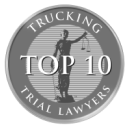
Georgia Motorcycle Laws and Your Personal Injury Claim
Motorcyclists in Georgia face unique risks on the road, making it essential for riders to understand the laws that govern



don’t wait to get the help you need.

Motorcyclists in Georgia face unique risks on the road, making it essential for riders to understand the laws that govern




Personal injury refers to physical, emotional, or psychological harm suffered by an individual due to the negligence, recklessness, or intentional actions of another party. Common examples include car accidents, slip and fall incidents, medical malpractice, workplace injuries, and product liability cases. The goal of personal injury law is to provide compensation to the injured party (plaintiff) for their losses, such as medical expenses, lost wages, pain and suffering, and other damages.
A personal injury lawyer, like Attorney Walter Gabriel, specializes in representing individuals who have been injured due to someone else’s actions or negligence. Here’s how Attorney Walter Gabriel helps victims receive maximum compensation for their injuries:
In summary, Attorney Walter Gabriel plays a vital role in helping accident victims recover the maximum compensation they deserve by providing expert legal representation, thorough case preparation, and unwavering advocacy.
Suffering an accident or injury can be a life-altering experience, leaving you physically, emotionally, and financially overwhelmed. In the moments following an incident, it’s crucial to take the right steps to protect your health, your rights, and your ability to recover compensation. At Walter Gabriel Accident & Injury Lawyers, we’re here to help you navigate this challenging time. Here’s what you should do after an accident or injury:
Your health and safety are the top priority. Even if your injuries seem minor, it’s essential to see a doctor as soon as possible. Some injuries, such as whiplash or internal trauma, may not show symptoms right away. A medical professional can document your condition, which is critical for both your recovery and any future legal claims.
Depending on the type of accident, report it to the appropriate authorities or parties. For example:
Gather as much evidence as possible to support your claim. This includes:
Be cautious about what you say after an accident. Avoid admitting fault or making statements that could be used against you later. This includes conversations with insurance adjusters, the other party involved, or even on social media. Let your attorney handle all communications on your behalf.
Navigating the legal process after an injury can be complex, especially when dealing with insurance companies or at-fault parties. An experienced personal injury attorney can help you:
At Walter Gabriel Accident & Injury Lawyers, we specialize in helping injury victims recover the compensation they deserve for medical bills, lost wages, pain and suffering, and more. We’ll fight tirelessly to protect your rights and hold responsible parties accountable.
Injury-related expenses can add up quickly. Maintain a file with all receipts, bills, and documentation related to your accident, including:
This information will be crucial when calculating the full value of your claim.
Insurance companies often try to offer quick, lowball settlements to minimize their payouts. Before accepting any offer, consult with a personal injury lawyer near you to ensure it covers all your current and future expenses. Once you accept a settlement, you typically cannot seek additional compensation later.
Let Us Help You Move Forward
If you or a loved one has been injured due to someone else’s negligence, you don’t have to face the aftermath alone. The team at Walter Gabriel Accident & Injury Lawyers is here to provide compassionate, experienced legal representation. We’ll guide you through every step of the process, so you can focus on healing while we fight for the justice and compensation you deserve.
Contact us today for a free, no-obligation consultation. Let us help you take the first step toward recovery and securing your future.
A personal injury lawyer typically works on a contingency fee basis, which means they only get paid if they successfully recover money for you. Here’s how it works:
In summary, a personal injury lawyer’s payment structure is designed to make legal representation accessible to everyone, regardless of their financial situation. You don’t have to pay a dime to start your case, and the lawyer only gets paid if you win. This arrangement aligns the lawyer’s interests with yours, ensuring they are committed to achieving the best possible outcome for your case.
The value of a personal injury case depends on several factors, and without specific details, it’s impossible to provide an exact amount. However, here are the key factors that influence the worth of a personal injury case:
For a more accurate estimate, provide specific details about your case to a qualified personal injury attorney. They can assess the unique factors of your situation and give you a better idea of what your case might be worth.
The value of a personal injury case depends on several factors, and without specific details, it’s impossible to provide an exact amount. However, here are the key factors that influence the worth of a personal injury case:
For a more accurate estimate, provide specific details about your case to a qualified personal injury attorney. They can assess the unique factors of your situation and give you a better idea of what your case might be worth.
How Louisiana’s New Law Impacts Car Accident Victims If you’ve been in a car accident in Louisiana, you might wonder
The Immediate Impact of Losing a Loved One to a Drunk Driver The immediate aftermath of losing a loved one
Many people associate severe injuries with high-speed, catastrophic accidents. However, low-impact accidents—those occurring at lower speeds or with minimal visible
Motorcyclists in Georgia face unique risks on the road, making it essential for riders to understand the laws that govern
The Immediate Impact of Losing a Loved One to a Drunk Driver The immediate aftermath of losing a loved one